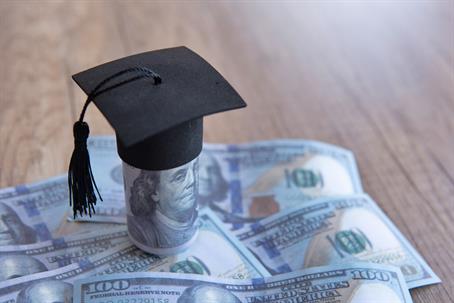Introduction: Why Student Loans Are Different
If you’re struggling under the weight of student loan debt, you are not alone. Americans collectively owe more than $1.7 trillion in student loans, and for many borrowers, the payments feel impossible to manage. One of the most common questions we hear from clients is: “Can I wipe out my student loans if I file for bankruptcy?” The short answer: it’s very difficult, but not always impossible. While credit cards, medical bills, and personal loans can usually be eliminated through bankruptcy, student loans are subject to special rules. However, recent legal developments have created new hope for borrowers.
The General Rule: Student Loans Are Harder to Discharge
Under U.S. bankruptcy law, most unsecured debts (like credit cards) are automatically discharged when you complete a Chapter 7 or Chapter 13 bankruptcy case. But with student loans, Congress added an extra layer of protection for lenders. Instead of being wiped out automatically, student loans are only discharged if you can prove that continuing to repay them would cause “undue hardship.” This high standard makes student loan discharge rare—but not impossible.
The Brunner Test: Proving “Undue Hardship”
In New York, courts apply what’s known as the Brunner Test to determine whether your student loans can be discharged. To pass, you must show three things:
- Minimal Standard of Living – You cannot maintain even a basic standard of living if forced to repay your loans.
- Persistence of Hardship – Your financial difficulties are likely to continue for a significant portion of the repayment period.
- Good Faith Effort to Repay – You’ve made honest attempts to repay your loans.
Only if all three elements are proven will a court consider discharging your student loans.
The Process: Filing an Adversary Proceeding
Filing for bankruptcy by itself does not automatically affect student loans. Instead, you must start a separate lawsuit within your bankruptcy case, known as an adversary proceeding. This involves: filing a complaint against your student loan lender, presenting detailed financial records to the court, and attending hearings. It is a complex and often contested process—having an experienced bankruptcy attorney is essential.
Alternatives to Full Discharge
Even if the court does not grant a full discharge, bankruptcy can still provide significant relief from student loans:
- Chapter 13 Payment Plan – Allows you to reorganize debts and include student loan payments in a structured plan over 3–5 years.
- Eliminating Other Debts – By wiping out credit cards or medical bills, bankruptcy frees up income you can apply toward student loans.
- Partial Discharge or Modification – In rare cases, courts have reduced balances or interest rates instead of eliminating loans entirely.
Recent Developments: A Shift in Attitude
Historically, student loan discharge was almost unheard of. But in recent years, courts and policymakers have started to recognize the crushing burden of student debt. In 2022, the U.S. Department of Justice and Department of Education issued new guidance encouraging government lawyers to be more flexible in reviewing undue hardship claims. Some bankruptcy judges in New York have already shown a willingness to grant relief in cases where borrowers clearly cannot pay.
Do You Qualify for Relief?
Every case is unique, and success depends on your personal situation. Courts may be more sympathetic if you have a low income relative to your loan balance, are dealing with chronic illness or disability, are older with limited income potential, or have consistently tried to make payments. An experienced bankruptcy lawyer can evaluate whether pursuing discharge is realistic for you.
Conclusion: Hope Is Possible
While student loan discharge in bankruptcy is challenging, it’s not out of reach. Even if your loans aren’t completely eliminated, bankruptcy can help by reducing other debts, restructuring payments, and giving you the breathing room you need. If you’re drowning in student loan debt, contact Robert H. Solomon, P.C., today. We offer free, confidential consultations to review your options and help you take the first step toward financial freedom.

